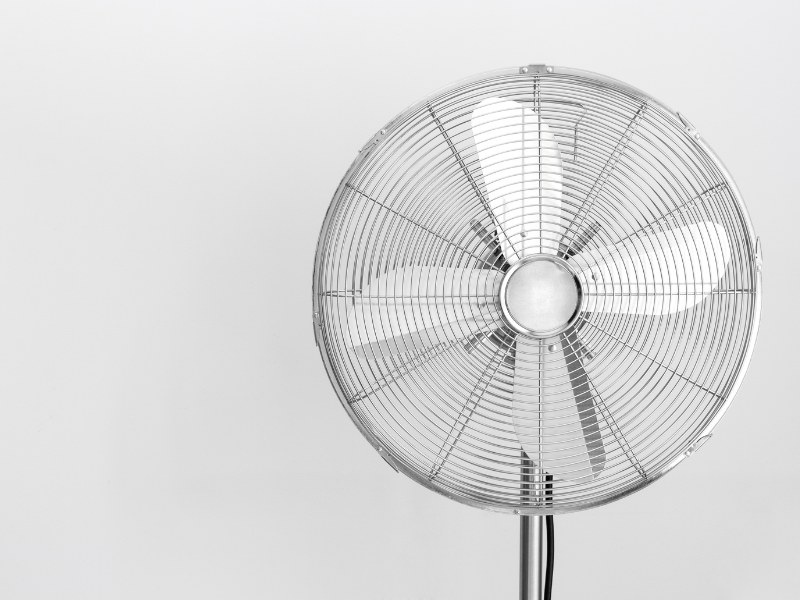Sleepless nights can often be a result of experiencing stressful events throughout the day. According to the 2013 Stress in America survey, stress significantly interferes with sleep patterns in both adults and teens.
This blog post provides you with a comprehensive understanding of how stress impacts sleep quality and introduces effective coping strategies for achieving restful slumbers. Stay tuned to learn how to break the vicious cycle of stress and poor sleep!
Understanding the Relationship Between Stress and Sleep
Stress and sleep share a deep bond. Too much stress can mess with your sleep pattern. It may keep you awake at night. This is very bad for your health. Most Americans face this problem.
Sleep issues, like insomnia, can come from stress. Insomnia means you have trouble falling asleep because of too many thoughts in your mind. You might also wake up a lot during the night or way earlier than you wanted to get up.
If anxiety is on your plate, it can sour other parts of life including sleeping well at night. Bad sleep does more harm than just making you tired the next day. It leads to poor health over time too! Your body needs good sleep to stay strong and healthy.
The Concept of Sleep Reactivity and Its Role in Sleep Disorders
Sleep reactivity, which can be defined as the degree to which external or internal stimuli disrupt sleep, plays a significant role in the development and perpetuation of various sleep disorders.
It has its roots in situational insomnia and is measured through various objective and subjective measures.
Definition of sleep reactivity
Sleep reactivity is all about how stress messes with your sleep. It tells us how much trouble you may have falling asleep or staying asleep when stuff gets tough in life. You could think of it as a kind of trait that stays the same over time.
People who show high sleep reactivity can see big changes in their sleep patterns due to stress exposure. This means they might not get enough sleep, which can make them more likely to feel sad or upset.
So, it's really something we need to pay attention to if we want good and restful nights.
Roots in situational insomnia
Situational insomnia has deep ties to sleep reactivity. This type of insomnia comes about due to stress or a change in your environment. It can mess with your sleep start, how long you stay asleep and the quality of your rest overall.
Both nature (genes) and nurture (environment) play a part in this form of insomnia. Change in work hours, moving to a new house or dealing with bad news are some common causes for it.
Being sick or feeling low can make situational insomnia worse too.
Measuring sleep reactivity
Sleep reactivity can be measured to determine how much stress disrupts a person's sleep. Here are some ways to measure sleep reactivity:
- Sleep diaries: Keeping a daily log of sleep patterns and recording any stressful events can help identify the impact of stress on sleep.
- Actigraphy: Using a wristwatch-like device that records movement can provide objective data on sleep quality and disruptions caused by stress.
- Polysomnography: This is a comprehensive sleep study that monitors brain waves, heart rate, breathing, and other physiological markers during sleep to assess the effects of stress on sleep.
- Questionnaires: Various self-report measures exist to assess subjective experiences of stress, insomnia symptoms, and overall sleep quality.
The Pathogenicity of Sleep Reactivity: Impact on Insomnia and Other Sleep Disorders
Sleep reactivity plays a significant role in the development and chronicity of insomnia, as well as other sleep disorders. Understanding its impact is crucial for finding effective coping strategies.
The role of sleep reactivity in insomnia incidence and chronicity
Sleep reactivity plays a significant role in the development and persistence of insomnia. When individuals experience high levels of stress, their sleep can be disrupted, making it difficult for them to fall asleep and stay asleep.
This is known as sleep reactivity. Research has shown that people with higher levels of sleep reactivity are more likely to develop chronic insomnia over time. Additionally, chronic insomnia may be a predisposing trait for anxiety disorders.
It's important to understand the impact of sleep reactivity on insomnia so that individuals can take steps to manage their stress and improve their sleep quality.
Different types of insomnia affected by sleep reactivity
Insomnia is a sleep disorder that can be influenced by sleep reactivity, which is our response to stress. Here are some different types of insomnia that can be affected by sleep reactivity:
- Acute insomnia: This type of insomnia lasts for a short period and is usually caused by a stressful event or sudden change in life circumstances.
- Chronic insomnia: Chronic insomnia occurs when a person has trouble falling asleep or staying asleep at least three nights a week for three months or more. Sleep reactivity can play a role in the development and persistence of chronic insomnia.
- Onset insomnia: People with onset insomnia have difficulty falling asleep at the beginning of the night, often due to racing thoughts or worry related to stress.
- Maintenance insomnia: Maintenance insomnia refers to difficulty staying asleep throughout the night. Sleep reactivity may contribute to waking up frequently during the night and having trouble getting back to sleep.
- Terminal insomnia: Terminal insomnia is characterized by waking up too early in the morning and being unable to go back to sleep. Stressful events can trigger this type of insomnia.
The neurobiology of sleep reactivity
The neurobiology of sleep reactivity plays a big part in understanding insomnia and other sleep disorders. It involves the brain mechanisms that influence our sleep patterns. One important factor is hyperarousal, which means being overly alert when we're trying to fall asleep.
This hyperarousal can disrupt our ability to relax and can make it harder for us to get the restful sleep we need. Studies have shown that there are connections between sleep reactivity and mental health conditions like depression and anxiety, as well as disturbances in our circadian rhythm, which is our internal body clock that regulates our sleep-wake cycle. Understanding these neurobiological aspects of sleep reactivity can help us develop strategies to improve our quality of sleep.
Coping Strategies for Restful Nights
Identify effective coping mechanisms for managing stress, such as engaging in relaxation techniques and implementing healthy sleep habits.
Identifying coping mechanisms for dealing with stress
Coping mechanisms help deal with stress. Here are some ways to cope with stress:
- Practice deep breathing: Take slow, deep breaths in and out to calm your mind and body.
- Engage in physical activity: Exercise releases endorphins, which reduce stress and improve sleep.
- Try relaxation techniques: Techniques like meditation, yoga, or tai chi can help relax your body and mind.
- Seek social support: Talk to a friend or loved one about your feelings and concerns.
- Maintain a healthy lifestyle: Eat nutritious meals, get regular exercise, and prioritize sleep.
- Set boundaries: Learn to say 'no' when you feel overwhelmed and need time for yourself.
- Prioritize self-care: Engage in activities that bring you joy and relaxation, such as hobbies or listening to music.
The role of depressive symptoms in sleep problems
Depressive symptoms can have a big impact on our sleep. When we feel sad, hopeless, or unmotivated, it becomes harder to fall asleep and stay asleep throughout the night. These symptoms can also make us wake up earlier than we would like in the morning.
Research shows that people with higher levels of depression are more likely to experience sleep problems.
Depression affects our sleep in different ways. It can disrupt our natural sleep-wake cycle, making it difficult to get enough restorative sleep. We may find ourselves tossing and turning at night or waking up frequently during the night.
Depression can also affect the quality of our sleep, leading to restless and shallow sleep.
Fortunately, there are coping strategies that can help improve both depressive symptoms and sleep problems. Engaging in activities that promote positive emotions like relaxation exercises or spending time doing things you enjoy can be helpful in managing depressive symptoms and promoting better sleep quality.
Building a routine around bedtime by practicing good "sleep hygiene" such as avoiding screens before bed, keeping a regular sleep schedule, creating a calm sleeping environment, and managing stress through techniques like cognitive-behavioral therapy (CBT) and self-care practices have been shown to reduce depressive symptoms and improve overall well-being.
Tips for breaking the sleep-stress cycle
- Prioritize your sleep: Make sleep a priority and ensure you allocate enough time for it in your daily schedule.
- Create a calming bedtime routine: Establish a relaxing routine before bed, such as taking a warm bath, reading a book, or practicing deep breathing exercises.
- Practice good sleep hygiene: Ensure your bedroom is dark, quiet, and at a comfortable temperature. Remove distractions like electronic devices from the bedroom.
- Manage stress during the day: Incorporate stress management techniques into your daily routine, such as exercise, meditation, or journaling.
- Limit caffeine and alcohol intake: Avoid consuming stimulants like caffeine and alcohol close to bedtime as they can interfere with your ability to fall asleep and stay asleep.
- Avoid screen time before bed: The blue light emitted by electronic devices can disrupt your sleep-wake cycle. Try to avoid using screens for at least an hour before bed.
- Seek professional help if needed: If you're struggling with chronic stress or sleep problems, consider reaching out to a healthcare professional who can provide guidance and support.
Remember that breaking the sleep-stress cycle takes time and effort. Implementing these tips consistently can help improve your sleep quality and overall well-being.
Conclusion
In conclusion, the relationship between stressful events and sleep is undeniable. Stress can disrupt our ability to fall asleep and stay asleep, leading to various sleep problems. However, there are coping strategies that can help promote restful nights despite stress.
By identifying effective coping mechanisms, managing depressive symptoms, and breaking the cycle of sleep-stress, individuals can improve their sleep quality and overall well-being.
It's important to prioritize self-care and seek support when needed to ensure a good night's rest even in challenging times.
FAQs
1. How do stressful events impact sleep?
Stressful events can disrupt sleep by causing racing thoughts, increased arousal, and difficulty falling or staying asleep.
2. What are some coping strategies for getting restful nights after experiencing stress?
Coping strategies to promote restful nights include establishing a bedtime routine, practicing relaxation techniques like deep breathing or meditation, creating a comfortable sleep environment, and avoiding stimulating activities close to bedtime.
3. Can exercise help with improving sleep quality after stressful events?
Yes, engaging in regular physical activity during the day can help improve sleep quality and reduce the negative effects of stress on sleep.
4. Are there any dietary changes that can aid in getting better sleep after experiencing stress?
Avoiding caffeine and heavy meals before bedtime and consuming foods rich in tryptophan (such as turkey or bananas) may support better sleep after stressful events.
5. When should I seek professional help if my sleep is consistently affected by stressful events?
If your attempts at improving your sleep are not effective or if you experience persistent difficulties sleeping due to stress, it is advisable to consult a healthcare professional for further evaluation and guidance on managing the impact of stress on your sleep.



















